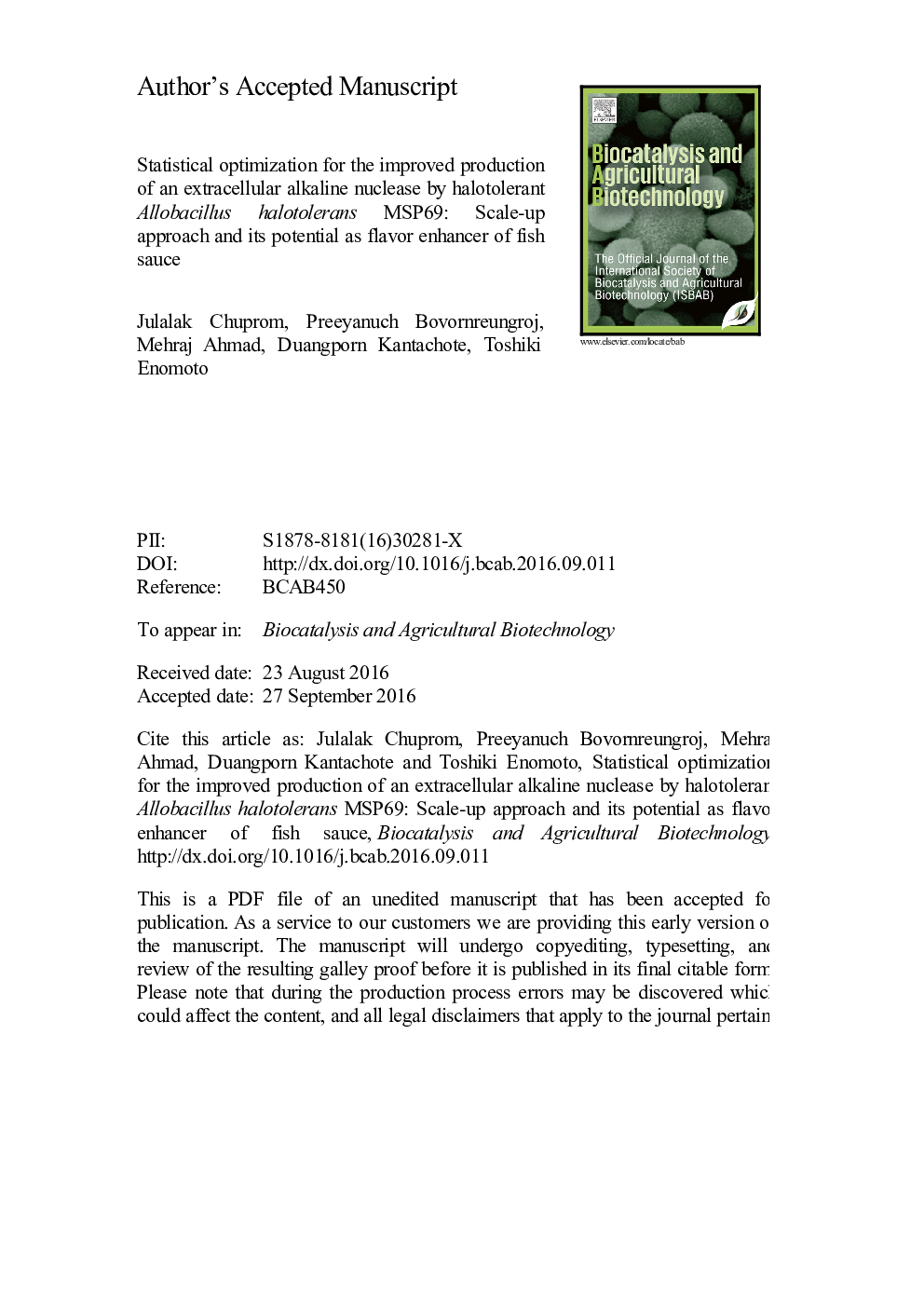| Article ID | Journal | Published Year | Pages | File Type |
|---|---|---|---|---|
| 8406293 | Biocatalysis and Agricultural Biotechnology | 2016 | 31 Pages |
Abstract
An efficient extracellular alkaline nuclease producing halotolerant bacterium was isolated from fermented shrimp paste (kapi) and identified as Allobacillus halotolerans based on the phenotypic analysis and 16S rDNA sequence homology. The temperature and pH ranges for growth were 20-45 °C (optimum at 37 °C) and pH 6.0-9.0 (optimum at pH 8.0). A statistical optimization method was applied to enhance the alkaline nuclease production using a 20-run, 3-factor with 5-level of the central composite design (CCD) generated by design expert software. The optimum conditions for the simultaneous production of deoxyribonuclease (DNase) and ribonuclease (RNase) in a single media were determined as 17.5 g/L of yeast extract, 1.59% (w/v) NaCl and an initial pH 8.0. The maximum productions of RNase (59.36 U/mL) and DNase (141.21 U/mL) were in agreement with the prediction values and the model was proven to be adequate. The optimized conditions from the shake-flask experiments were validated in a 7 L lab scale fermenter, and the RNase and DNase production increased to 3.95-fold and 6.77-fold, respectively. Furthermore, the alkaline nuclease preliminary employed as flavor enhancer in the fish sauce fermentation process increased the aspartic acid (776.03 mg/100 mL), glutamic acid (1613.78 mg/100 mL), 5â²-GMP (36.89 mg/100 mL) and 5â²-AMP (21.49 mg/100 mL) in fish sauce (P<0.05). These results demonstrate that the new alkaline nuclease showed an attractive potential for biotechnological applications as biocatalyst, especially for fish sauce production.
Related Topics
Life Sciences
Agricultural and Biological Sciences
Agricultural and Biological Sciences (General)
Authors
Julalak Chuprom, Preeyanuch Bovornreungroj, Mehraj Ahmad, Duangporn Kantachote, Toshiki Enomoto,
